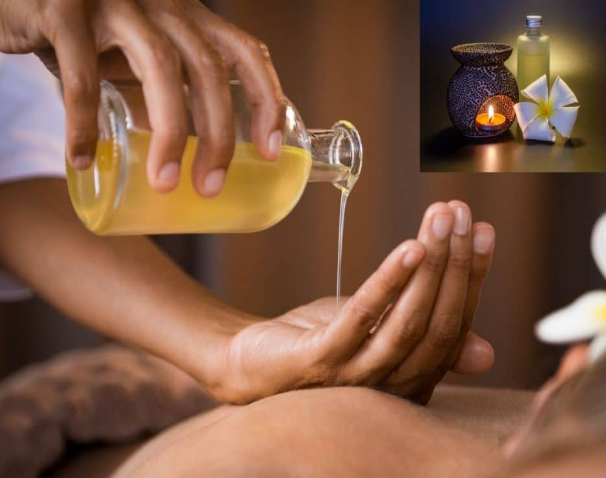
MASSAGE
Massage is a therapeutic practice that involves the manipulation of soft tissues in the body, typically muscles, tendons, ligaments, and connective tissues, using various techniques and pressures. It has been used for centuries in many cultures as a means of promoting relaxation, relieving pain, and improving overall well-being. Here are some key points about massage and its benefits:
Types of Massage:
-
Swedish Massage: A gentle, relaxing massage that uses long strokes, kneading, friction, tapping, and gentle stretching. It's great for stress relief and relaxation.
-
Deep Tissue Massage: A more intense massage that targets the deeper layers of muscles and connective tissues. It's often used to address chronic muscle tension and pain.
-
Sports Massage: Geared towards athletes, it combines techniques from Swedish and deep tissue massage to help prevent or treat sports-related injuries and improve performance.
-
Shiatsu: A Japanese technique that involves applying pressure to specific points on the body to balance the body's energy flow.
-
Thai Massage: Involves passive stretching and gentle pressure along energy lines in the body. It's often performed fully clothed on a mat on the floor.
-
Hot Stone Massage: Heated stones are placed on the body to help relax muscles and provide deeper relaxation.
Benefits of Massage:
-
Relaxation: Massage can promote relaxation, reduce stress, and relieve anxiety by triggering the release of endorphins, the body's natural feel-good hormones.
-
Pain Relief: It can help alleviate various types of pain, including muscle tension, headaches, and chronic conditions like arthritis.
-
Improved Circulation: Massage promotes better blood circulation, which can help deliver oxygen and nutrients to the body's tissues and remove waste products.
-
Muscle Rehabilitation: Athletes and individuals recovering from injuries often use massage to improve muscle function and aid in recovery.
-
Enhanced Flexibility: Regular massages can help increase joint flexibility and range of motion.
-
Stress Reduction: The calming nature of massage can reduce cortisol levels (a stress hormone) and promote an overall sense of well-being.
-
Better Sleep: Many people find that massage can improve the quality and duration of their sleep.
-
Immune System Support: Some studies suggest that regular massage may boost the immune system's function.
-
Improved Mental Health: Massage can have a positive impact on mental health, reducing symptoms of depression and anxiety.
-
Pain Management: It can be used as a complementary therapy for individuals dealing with chronic pain conditions, such as fibromyalgia or lower back pain.
It's important to note that the benefits of massage can vary from person to person, and the specific benefits you experience may depend on the type of massage, the therapist's skill, and your individual needs. If you're considering getting a massage, consult with a qualified massage therapist to determine the best approach for your specific goals and concerns.
Types of Massage:
-
Swedish Massage: A gentle, relaxing massage that uses long strokes, kneading, friction, tapping, and gentle stretching. It's great for stress relief and relaxation.
-
Deep Tissue Massage: A more intense massage that targets the deeper layers of muscles and connective tissues. It's often used to address chronic muscle tension and pain.
-
Sports Massage: Geared towards athletes, it combines techniques from Swedish and deep tissue massage to help prevent or treat sports-related injuries and improve performance.
-
Shiatsu: A Japanese technique that involves applying pressure to specific points on the body to balance the body's energy flow.
-
Thai Massage: Involves passive stretching and gentle pressure along energy lines in the body. It's often performed fully clothed on a mat on the floor.
-
Hot Stone Massage: Heated stones are placed on the body to help relax muscles and provide deeper relaxation.
Massage for any type of age:
Massage can be beneficial for individuals of all ages, from infants to the elderly. However, the type and intensity of massage may vary depending on a person's age, physical condition, and specific needs. Here's how massage can be adapted for different age groups:
-
Infants and Babies:
- Infant massage can be used to promote bonding between parents and babies.
- It may help improve sleep patterns, reduce colic, and soothe fussy infants.
- Specialized infant massage techniques are used, and parents are often taught how to perform these massages safely.
-
Children and Adolescents:
- Massage can help reduce stress and anxiety in children and teenagers.
- It may be beneficial for young athletes to prevent and treat sports-related injuries.
- For children with specific medical conditions, pediatric massage therapists can provide specialized care.
-
Adults:
- Adults of all ages can benefit from massage for relaxation, stress reduction, and pain management.
- Pregnant women can benefit from prenatal massage to relieve discomfort and reduce stress during pregnancy.
- Athletes often use sports massage to enhance performance and aid in recovery.
-
Older Adults:
- Massage can help alleviate age-related issues like arthritis, joint stiffness, and reduced flexibility.
- It can improve circulation, which is particularly important for older adults.
- Elderly individuals may find massage comforting and a source of emotional support.
When considering massage for people of any age, it's essential to choose a qualified and experienced massage therapist who is trained to work with specific age groups and their unique needs. Always inform the therapist of any medical conditions or concerns, as this will help them tailor the massage to the individual's requirements.
Additionally, it's important to be aware of any contraindications or precautions associated with massage for certain age groups. For example, gentle and cautious techniques are typically used with infants and elderly individuals, and therapists should be aware of the specific considerations involved.
In summary, massage is a versatile and beneficial therapy that can be adapted to suit individuals of all ages, from infants to the elderly. It offers a wide range of physical and emotional benefits and can be a valuable component of a holistic approach to health and wellness at any stage of life.